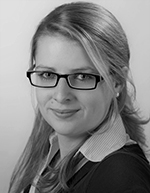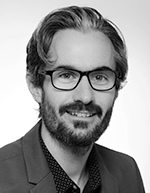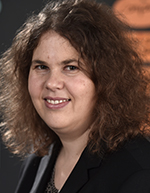The “new professionalism” in adult and continuing education – a multi-level perspective



From left to right:
Lisa Breitschwerdt
Julius-Maximilian-University Würzburg, Germany
Reinhard Lechner
Julius-Maximilian-University Würzburg, Germany
Regina Egetenmeyer
Julius-Maximilian-University Würzburg, Germany
Abstract – Academic discourse regarding professionalisation in adult education currently focuses on the professionalism and professional development of adult educators and on the skills and competences needed for working in the field. Theoretical discussions of the sociology of professions and the “new professionalism” approach suggest that we need a broader perspective which also includes the perspectives of the respective organisation and of society. The article refers to the research project KOPROF (2019), which is based on the theoretical perspective of the “new professionalism”. This perspective also analyses the interplay between the levels of society, organisation and individual competences.
A focus on the professionalism and professional development of professionals in adult and continuing education has been observable for several years (Jütte et al. 2011). Research in adult education has tried for a long time to identify a profession designated as “adult education’” by working towards identifying specific attributes. Pfadenhauer and Sander (2005) summarise the attributes of professions in this traditional perspective that are the subject of central discussion in science as follows: Professions are understood as activities that perform central societal functions such as healthcare or justice. They are accompanied by certain privileges and social prestige. Academic and scientific knowledge taught at Universities is therefore a central attribute. Furthermore, the quality of professional work is typically monitored by professional associations.
The perspective of the “new professionalism”
Due to the changes taking place in modern society in general, and in the adult education sector in particular, focusing on the attributes of a profession is no longer useful. Modern society is characterised by the diffusion of knowledge and by interdisciplinary structures of working together across disciplinary boundaries. Adult education is a prime example of this interdisciplinarity because it has been characterised from the beginning by a high degree of heterogeneity in all areas, including staff, organisations, topics, target groups, and so on. A focus on professionalism has emerged since the late 1990s, along with a strong orientation towards the competences required to work as an adult educator (e.g. Lencer, Strauch 2016; Nittel et al. 2014; Research voor Beleid 2008, 2010). These studies examine the educational and professional paths of adult educators, their entry paths towards and reasons for entering adult education, as well as the knowledge and competences that they need in order to work in the field.
However, this focus neglects the heterogeneity of the field of adult education and the requirements of the different systems with which adult educators are confronted. Evetts (2011: 407) points out that professionalism no longer seems to be a “distinctive logic”; instead, it is integrated into organisational structures and influenced by other logics. Adult education activities are not only pedagogical in nature; professionals also have to deal with questions of funding, quality management and standardisation. For example, an adult education teacher can never just focus on professional planning and lecturing without also considering questions of funding or the objectives of the organisational context. The professional adult educator always has to balance the demands of the bureaucratic, economic and professional perspectives (Egetenmeyer et al. 2019).
The (1) economy requires adult educators to deal with questions of supply and demand for their own educational offerings. Depending on the targets of the respective organisation, adult educators have to make their own arrangements in order to ensure cost coverage or profits. This is accompanied by competition from other adult education providers on the local or broader market. At the same time, there are requirements of the (2) bureaucracy, which we understand as standards. Public bodies can define these standards. Adult education organisations have to comply with such standards in order to obtain public funding for adult education courses such as labour market-oriented adult education, or integration courses for refugees and migrants. Standardisation is also related to questions of quality management, when adult education organisations have to meet predefined criteria in order to earn publicly-recognised certifications for their programme. The third perspective is (3) professionalism. From this perspective, adult educators working in the field are autonomous experts in adult education. They have sovereignty over adult education expertise, and with this perspective as a starting point, they organise, plan and implement processes of adult learning and teaching in a professional manner. In summary, when we talk about professionalism in adult education, we talk about adult educators who are continually dealing with different economic, bureaucratic and professional requirements as part of their daily work. Balancing the needs of the three different logics is characteristic of adult education. As Noordegraaf (2015) has argued, this balancing can be referred to as “hybrid professionalism” (Figure 1).
Researching the “new professionalism”
In the KOPROF project (Contours of professional development in continuing education: requirements for the professionalisation of personnel in continuing education), the authors focus on the “new professionalism” perspective in order to analyse professionalisation in professional continuing education in Germany. In order to obtain an overview of the interaction between the different logics, a three-level model was selected, comprising society, organisation and individual competences. The model involved collecting qualitative data (documents, interviews, focus groups) and quantitative data (a questionnaire) in eight continuing education organisations (Figure 2). The research process followed the research approach of the Critical Communicative Method (Gómez et al. 2011), which emphasises reflective research conducted in cooperation and dialogue with the target groups in order to initiate societal and political changes.
Adult education and continuing education are two terms that have been used synonymously in the German academic discourse for several decades. This does not ignore the different traditions of “adult education” as more general and civic education-orientated, and “continuing education” as more vocationally and professionally oriented. In fact, when looking at a provider or even a single course, it is often virtually impossible today to say whether it is undertaken for personal or professional development. This is why the interpretation of the data which were gathered from a continuing education provider is also relevant to adult and continuing education as one joint academic discipline.
Contours of professionalisation in adult and continuing education
The KOPROF project identified several overall contours of professionalisation in professional adult and continuing education. Firstly, the data supported the new professionalism perspective, meaning that the adult education organisation exerts a strong influence when it comes to the professionalisation of adult educators. Research currently focuses on identifying the qualifications, skills and competences needed by adult educators. The necessary conditions for professional work and the existing possibilities and limitations of the work environment are not considered. Adult education organisations act as important interfaces between adult educators and society’s demands. The data indicates that professionalisation is taking place when staff development and organisational development are closely interlinked. Adult educators identify with their organisational context and push the organisation forward through intensive networking in their individual field of activity. Organisational structures provide space for the individual development of adult educators. This important role of adult education organisations is supported by umbrella organisations. The latter bundle and provide general information, knowledge or training opportunities for their members. Because of the heterogeneity of adult education, the umbrella organisations help provide structure, identify needs in terms of societal developments, or define common quality standards.
A further overall contour of professionalisation could be identified as the mediating role of professional adult and continuing education. Adult and continuing educators mediate between the different requirements and expectations of various sides and players. They mediate between the pedagogical and subject-specific focus when preparing a course. During the course, they have to mediate between the wishes and motivations of participants and those of the principal who is funding it. They have to mediate between the targets of the adult education organisation for a specific course and the individual perception of the teacher teaching this course. Mediation between different sides and perspectives characterises adult educators’ everyday working lives. In addition, the project found an institutionalisation of communication pathways for mediating between staff and society. Again, the umbrella organisation takes on an important role when it comes to communicating the experiences and expertise of adult educators in their daily practice to stakeholders in adult education policy.
The third contour refers to the systematic integration of these moments of mediation into organisational development. It was possible to identify within this contour innovative ways of supporting the professional development of adult educators. Innovation was found where support for professional development was closely linked to organisational development. With this focus, the development of the organisation goes hand in hand with the individual development of adult education professionals. The professional development of the personnel is then central to achieving organisational development, for example when organisational strategies are developed towards digitalisation. If the organisation then offers professional development towards digitalisation, individual and organisational development strengthen one another.
Development needs for professionalisation in adult and continuing education
The KOPROF project used these findings in order to identify requirements for further development to help boost the professionalisation of adult education:
- Adult education organisations are key when it comes to the individual professionalisation of adult educators. Adult education organisations can develop general conditions for professional development and offer space and support for professional actions and exchanges. Adult education organisations therefore have to be understood as key stakeholders within the individual professionalisation of adult educators.
- Public funding has to cover the core budget of the adult education organisation (not only projects and activities) in order to value processes of organisational development. These are essential for individual professionalisation. Funding should therefore be designed in a way that supports contexts in which adult educators can act professionally.
- Most people working in adult and continuing education have a specialised qualification, but what is needed are pedagogical competences for dealing with the requirements of the field. To address the different requirements within the field of work, and to mediate between the various demands, adult educators need opportunities to participate in continuing academic education. It is therefore essential to offer modularised academic courses in adult and continuing education. The number of courses that fit these demands is too small at present.
- Finally, the KOPROF project identified the need for intensive practical research, which includes refining strategies that bring together research and practice in adult and continuing education, for example by providing joint workshops or by developing research projects.
The research results from KOPROF highlight the relevance of adopting a different perspective on professionalisation in adult and continuing education. We are talking about the perspective of the “new professionalism” approach, which emphasises the importance of adult and continuing organisations and the embeddedness of professionals in various requirements and demands from different sides. Research projects have to take account of these developments and of the specifics of the adult and continuing education field. They have to adopt a broader perspective which includes the organisational and societal levels in addition to the individual competences of the professional level, as well as the interplay between these levels.
References
Egetenmeyer, R; Breitschwerdt, L; Lechner, R. (2019): From ‘traditional professions’ to ‘new professionalism’: A multi-level perspective for analysing professionalisation in adult and continuing education. In: Journal of Adult and Continuing Education, 25 (1), 7-24. https://doi.org/10.1177/1477971418814009
Evetts, J. (2011): A new professionalism? Challenges and opportunities. In: Current Sociology, 59 (4), 406–422.
Gómez, A.; Puigvert, L.; Flecha R. (2011): Critical Communicative Methodology: Informing Real Social Transformation Through Research. In: Qualitative Injury, 17 (3), 235–245.
Jütte, W.; Nicoll, K.; Salling Olesen, H. (2011): Professionalisation: the struggle within. In: European Journal for Research on the Education and Learning of Adults – RELA, 2(1), 7–20. https://bit.ly/2KG5xL6
KOPROF (2019): Contours of professional development in continuing education. https://bit.ly/2Zlznsw
Lencer, S.; Strauch, A. (2016): Das GRETA-Kompetenzmodell für Lehrende in der Erwachsenen- und Weiterbildung. https://bit.ly/2WwYdDJ
Nittel, D.; Schütz, J.; Tippelt, R. (2014): Pädagogische Arbeit im System des lebenslangen Lernens. Ergebnisse komparativer Berufsgruppenforschung. Weinheim, Basel: Beltz.
Noordegraaf, M. (2015): Hybrid professionalism and beyond: (New) Forms of public professionalism in changing organizational and societal contexts. In: Journal of Professions and Organization, 2 (2), 187–206.
Pfadenhauer, M.; Sander, T. (2010): Professionssoziologie. In: Kneer, G.; Schroer, M. (eds.): Handbuch Spezielle Soziologien. Wiesbaden: VS Verlag für Sozialwissenschaften.
Research voor Beleid (2008): ALPINE – Adult Learning Professions in Europe. A Study of the current situation, trends and issues. https://bit.ly/2F64Ve4
Research voor Beleid (2010): Key competences for adult learning professionals. Contribution to the development of a reference framework of key competences for adult learning professionals. Final report, Zoetermeer. https://bit.ly/2WGVM6z
About the authors
Lisa Breitschwerdt, M.A., is a research fellow at the professorship for adult and continuing education at the Julius Maximilian University in Würzburg. She focuses on topics of professionalisation in adult education, and teaches the didactics of adult education at the University. She is currently writing her doctoral thesis about the role of organisations in the process of professionalisation of adult educators.
Contact
lisa.breitschwerdt@uni-wuerzburg.de
Mag. Reinhard Lechner is a research fellow at the professorship for adult and continuing education at the Julius Maximilian University in Würzburg. He currently focuses on the topics of professionalisation and digitisation in organisations of adult und continuing education. He is writing his doctoral thesis on the topic of argumentations of professionalisation in adult education.
Contact
reinhard.lechner@uni-wuerzburg.de
Regina Egetenmeyer, Prof. Dr., is a professor of adult and continuing education at the Julius Maximilian University in Würz-
burg. She focuses on topics of professionalisation in adult education, especially questions of academic professionalisation and international mobility. She is also carrying out research into internationalisation and digitalisation of adult education.
Contact
regina.egetenmeyer@uni-wuerzburg.de




